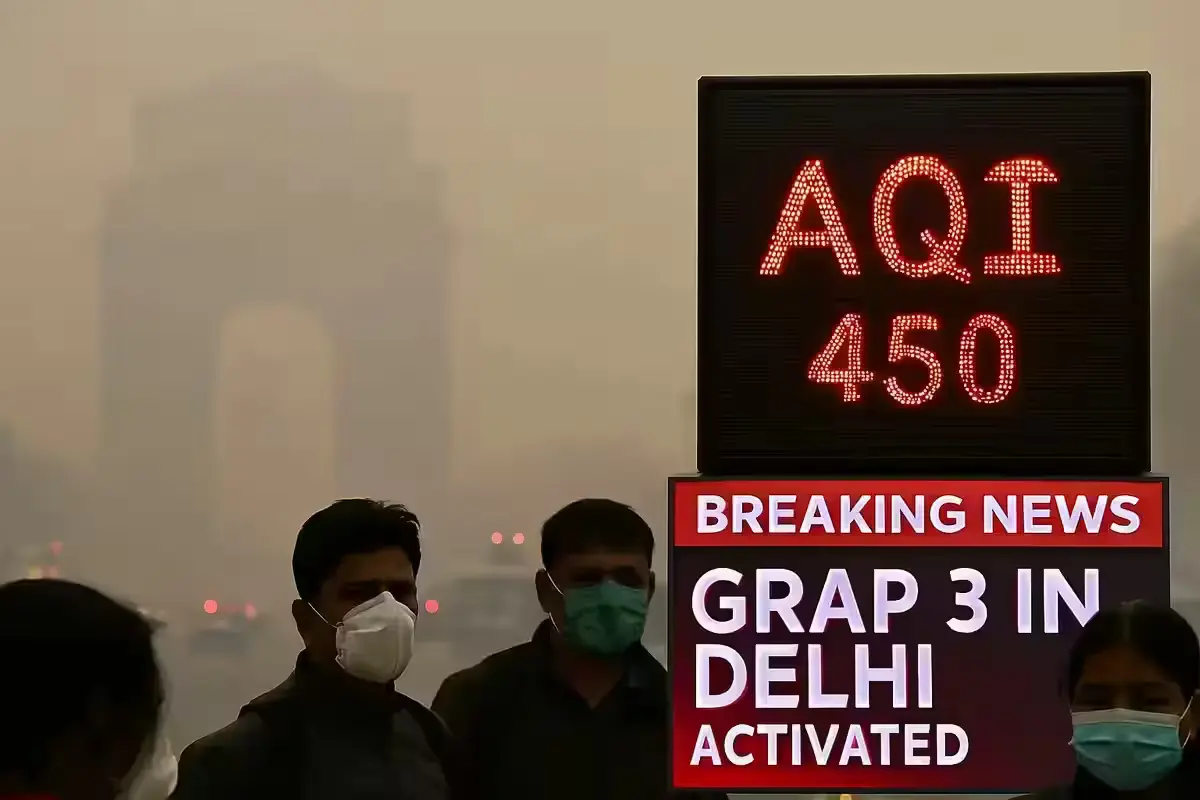Key Points – GRAP 3 Restrictions in Delhi
- Delhi’s AQI crosses 400, triggering GRAP 3 (Stage III) restrictions.
- Construction and demolition work halted, older vehicles banned.
- Schools up to Class 5 shift to hybrid or online mode.
- Work-from-home advised to cut down vehicle emissions.
- Measures to stay until air quality improves.
GRAP 3 in Delhi: What the Stage III Restrictions Mean
As Delhi’s air quality entered the “severe” zone, authorities have implemented **GRAP 3**, the third stage of the Graded Response Action Plan. The move came after the city’s average Air Quality Index (AQI) crossed the 400 mark, forcing officials to impose a set of emergency measures to control pollution across the National Capital Region (NCR).
Why GRAP 3 Was Activated
With stagnant weather conditions and a rise in emissions from multiple sources, pollution levels in Delhi surged sharply over the past 48 hours. To prevent further deterioration, the Commission for Air Quality Management (CAQM) decided to trigger Stage III of GRAP, which involves several immediate restrictions to reduce dust, vehicular, and industrial emissions.
What’s Banned Under GRAP 3
Non-essential construction and demolition activities are completely banned across Delhi and NCR. Older vehicles — specifically BS-III petrol and BS-IV diesel cars — are prohibited from operating. Schools up to Class 5 have been advised to move classes online or follow a hybrid format to safeguard children from exposure to toxic air.
Private offices have been asked to implement work-from-home or flexible timings wherever possible to reduce traffic congestion. Local authorities are also increasing checks on waste burning, road dust control, and industrial emissions.
Impact on Daily Life

For residents, the restrictions mean quieter construction sites, fewer vehicles on the roads, and an overall slowdown in outdoor activities. However, health experts have welcomed the move, saying that early intervention under GRAP 3 is crucial to prevent respiratory illnesses and long-term health effects caused by prolonged exposure to poor air.
What Happens Next
Officials say GRAP 3 restrictions will stay in place until air quality shows consistent improvement. Weather patterns and pollution levels are being monitored closely, and if the situation worsens, authorities may consider Stage IV — the strictest level under the plan. For now, citizens are advised to limit outdoor exposure, wear masks if needed, and support measures that help bring cleaner air back to the city.
Frequently Asked Questions (FAQ)
Q1. What is GRAP 3 in Delhi?
GRAP 3, or Stage III, is part of the Graded Response Action Plan that activates when Delhi’s air quality turns severe. It includes bans on construction, older vehicles, and other pollution sources.
Q2. Which activities are restricted under GRAP 3?
Construction and demolition work, use of older vehicles, and industrial operations using polluting fuels are restricted under GRAP 3.
Q3. Are schools affected by GRAP 3?
Yes. Schools up to Class 5 have been advised to conduct classes online or in hybrid mode until air quality improves.
Q4. How long will GRAP 3 remain in effect?
The restrictions will continue until the AQI drops below the severe range and shows sustained improvement.